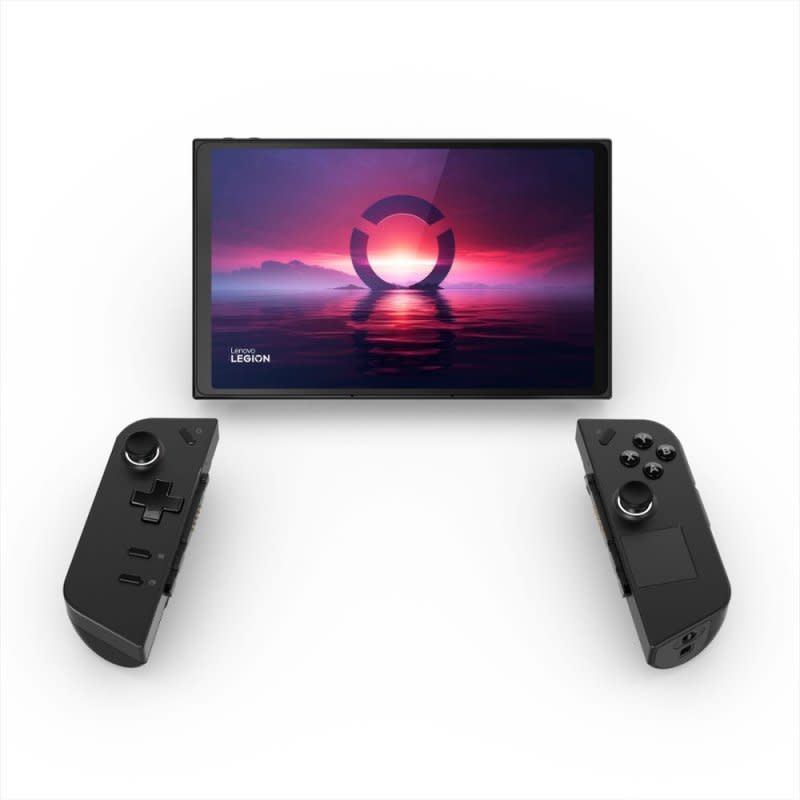Lenovo’s Steam Deck Competitor Is A Lot Like The Switch

Lenovo Legion Go
The Nintendo Switch really did a number on gaming hardware companies. Nintendo hit the nail on the head and showed that a handheld gaming device running console-quality games was entirely possible, and naturally imitators followed. First, it was Valve, with the Steam Deck. Then came Asus and a host of Chinese companies, and now Lenovo is throwing its hat in the ring.
The Lenovo Legion Go is a new handheld gaming device running Windows. It has an 8.8-inch screen, Switch-like controls on the side, a bunch of storage space and RAM, and a hefty battery to keep it running for… at least an hour, probably more.
The Legion Go is running on the AMD Ryzen Z1 Extreme APU, the exact same chip present in the Asus ROG Ally. In fact, a lot of the specs and even the appearance of the device looks pretty similar to the Ally and every other Windows handheld. It’s not that far off from the Ayaneo Kun, the AYN Loki Max, the GPD Win 3, and so many more. That is to say — it looks like the Steam Deck, which looks like the Switch.

Lenovo
Lenovo’s flavor of Windows handheld is actually even more like the Switch than most Steam Deck-like handhelds, thanks to its removable controllers. Like the Switch’s Joy-Con, the controllers on the side of the handheld come off and can be used wirelessly, in something that definitely isn’t breaching Nintendo’s patents but probably raised some lawyers’ eyebrows at both Nintendo and Lenovo. In any case, the familiar-looking device is available to order from Best Buy and Lenovo’s own website now, and is set to launch by the end of the month.
The Lenovo Legion Go will set you back $699 for the 512GB variant, or $749 for the 1TB variant. That makes it similarly priced to the ROG Ally, but still much more expensive than the cheapest Steam Deck model, which retails for $399. Like the Ally, it is more powerful than the Deck, at least on paper, so the extra cash does get you something, but real-world usage may reveal a different story.
In the past, I’ve given my reasons I won’t buy a Steam Deck, and those reasons still stand. But with devices like the Legion Go and the ROG Ally, I’m still not sure there’s a viable competitor out there, either. As more companies start to move into the space, one can only hope that something rises above the rest to become the clear choice.

